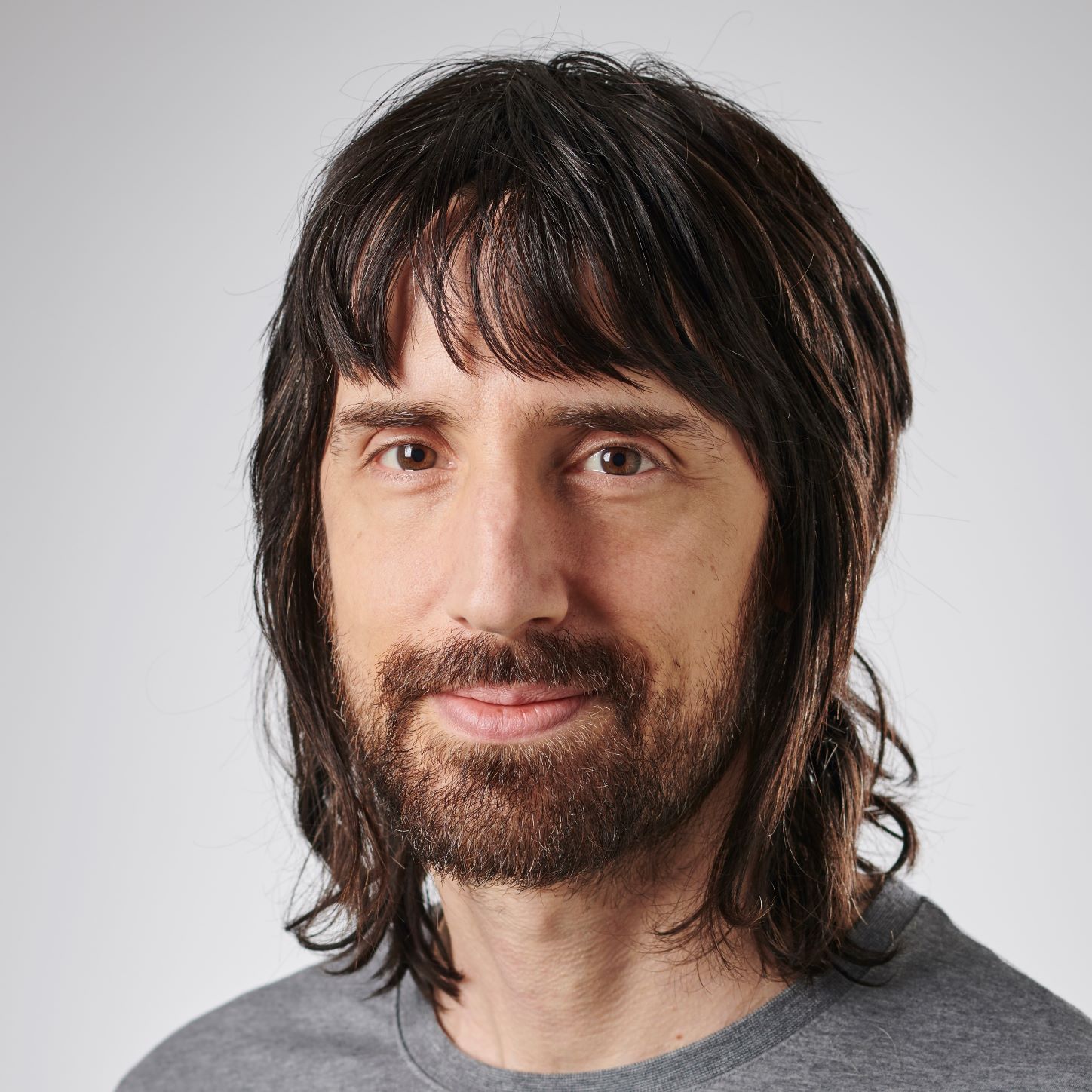Ethan Johns: “This whole thing about producing - it all came from playing”
The producer and multi-instrumentalist talks guitar
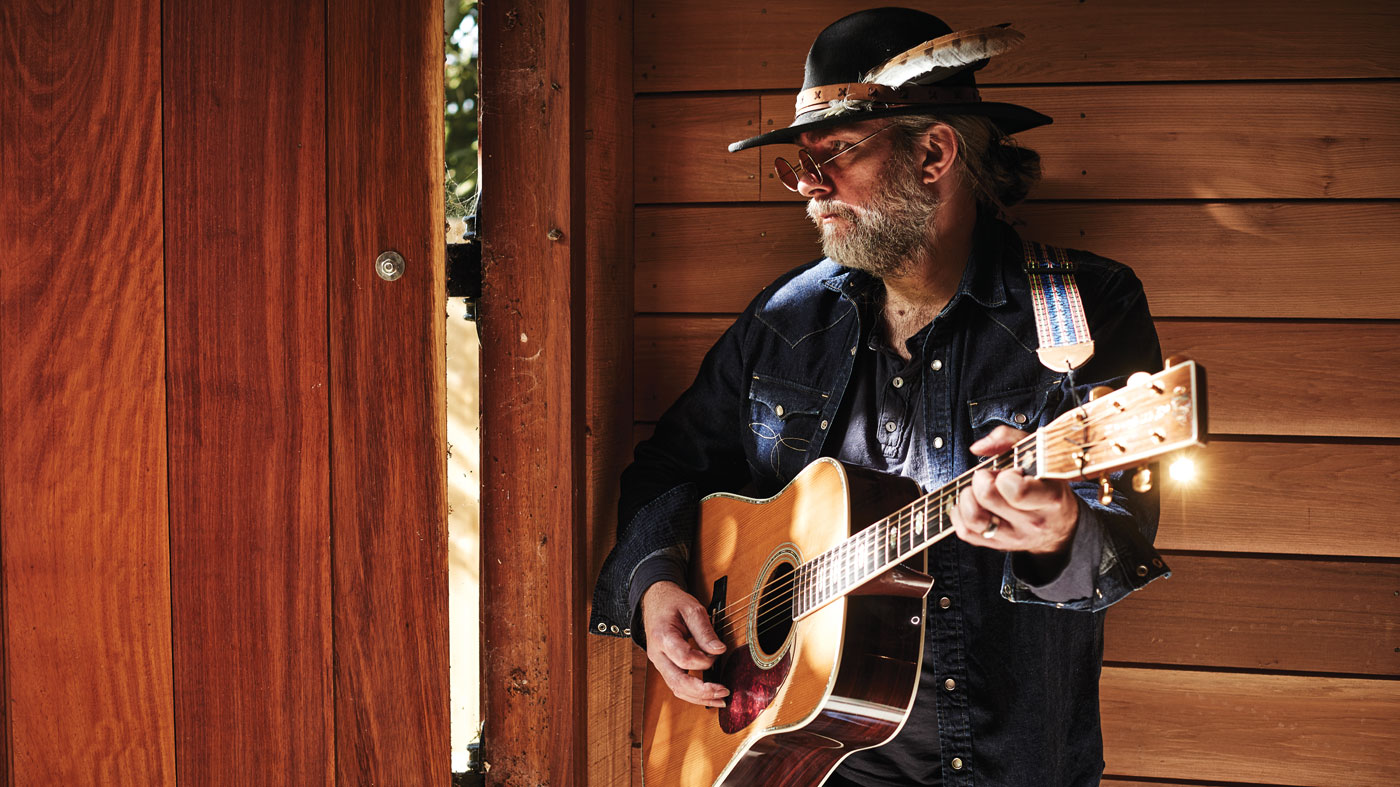
From musician, writer and performer to producer, mix engineer and record label owner, Ethan Johns has honed his craft as a guitarist on both sides of the control room glass.
Ethan Johns’ productions are synonymous with a host of world-class studio albums from a profusion of artists such as Paul McCartney, Tom Jones, Laura Marling, Paulo Nutini, Ryan Adams and Kings Of Leon.
His characteristically organic hyperrealism in recorded sound is a sonic signature that pays testament to a pure, lifelong love of music, not only as an award-winning producer, but also as a notable multi-instrumentalist and creative artist.
With a string of solo releases and innumerable collaborations under his belt, he joins us here to share some sound advice with you…
How did you discover music?
“Brian Jones gave my dad [record producer Glyn Johns] a dulcimer. I was about three years old and I remember sitting in a big green armchair strumming on this dulcimer for hours. There was something inexplicable about the way I could play a specific series of notes that would make me feel happy, or a specific series of notes that would make me feel sad. It was like magic to me! I was obsessed and from then on all I’ve ever done is play music.”
What was the first guitar that you owned?
Get the MusicRadar Newsletter
Want all the hottest music and gear news, reviews, deals, features and more, direct to your inbox? Sign up here.
I don’t like to have a plan. The freer the circumstances are, the more likely that something magical is going to happen
“It was a red Fender Bronco - I’ve still got it! I got it for Christmas in 1974. [laughs] I used to sneak it in bed and play in the dark. That was a tip from my dad. He said, ‘What you should do is play in the dark because your fingers will remember where to go better if you can’t see.’
“I never took lessons, but there were a couple of guys around that were mentors: Bernie Leadon - he was with Eagles, but he didn’t want to do Hotel California and went surfing instead - and the other guy was Andy Fairweather Low. He always had time for me and would always help me tune or restring or give the guitar a polish.”
How did you venture into the recording environment of music?
“As a kid, I played guitar and wrote as much as I could all the time. I got a little demo studio together using a four-track tape recorder and was writing songs. Then I got an eight-track machine. I used to spend days and days on it! I mean, it didn’t even matter if I didn’t have a song to record, I’d just start making sound collages and just obsessively disappear into the world of recording, looking for sounds. Just always experimenting.”
Do you prefer a more experimental approach to recording?
“Yeah. That hasn’t really changed; I don’t like to have a plan. The freer the circumstances are, the more likely that something magical is going to happen. There are times when you need preproduction, but I always leave the door open for something unusual to happen. If you’re inspired, the work’s going to be good. I’ve been making records for so long now, but, really, I’ve just been making music. This whole thing about producing - it all came from playing. The whole thing.”
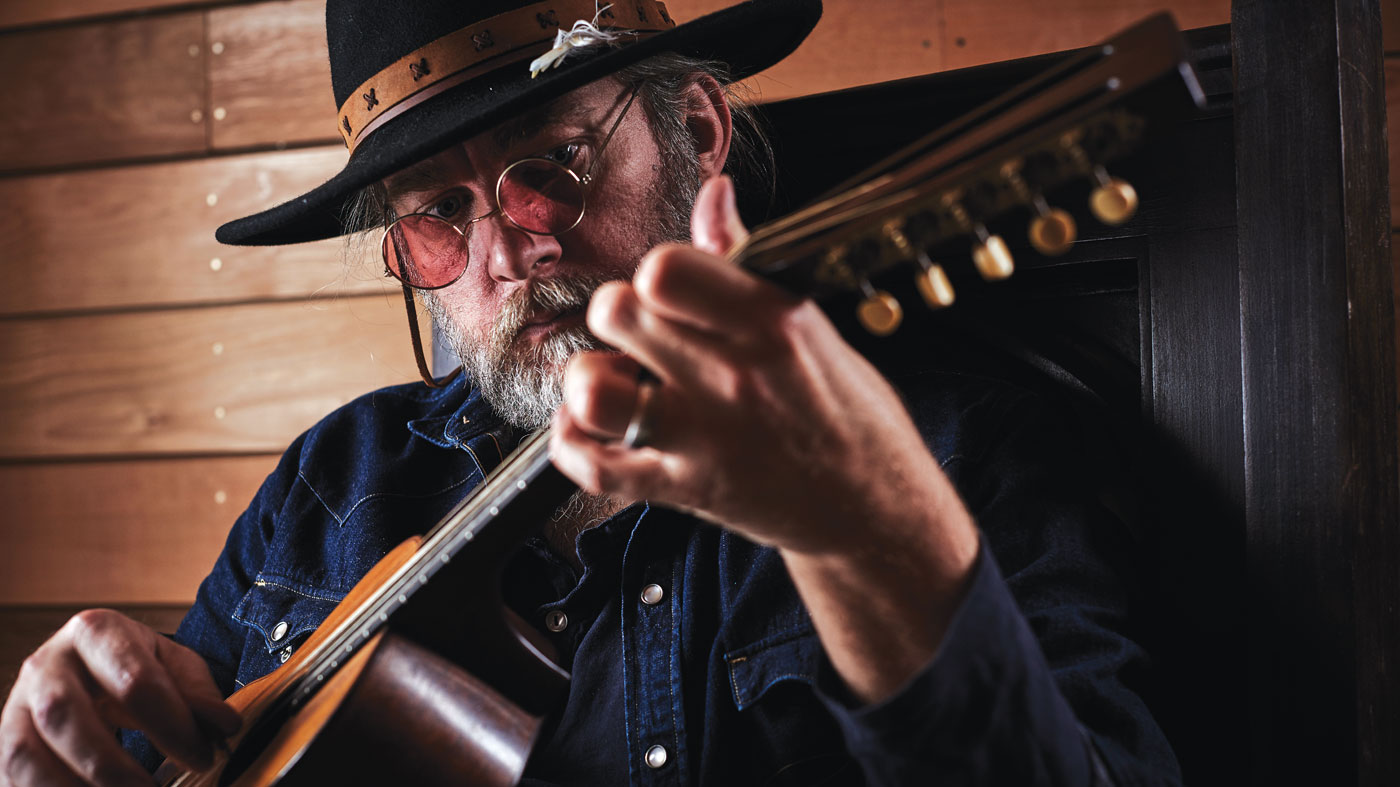
Martin man
So would you identify as a guitarist first and foremost?
“Yeah, guitarist/drummer. The first production gigs that I got were from songwriting sessions. I’d play guitar, write songs with other people and make a demo. And then some A&R guy would hear the demo and say, ‘That sounds good - who recorded that?’ and then - boom!
“All of a sudden I’d be making a record. I had pretty good recording techniques and a lot of the singer-songwriters that I worked with didn’t know how to record anything. I was just helping them make a record, but even when I’m recording with bands, if there’s any opportunity to play I will.”
What acoustic guitars are really important to you right now?
I’ve got a 1969 Martin D-18... I picked that thing off the stand, played one chord and went, ‘How much do you want for it?!
“I’ve got a 1969 Martin D-18, which is really nice. That’s the one I recorded the most with on my last solo album [Silver Liner, Ethan Johns With The Black Eyed Dogs]. It’s really beat - proper thrashed. It’s an important guitar to me. I’d just moved out to LA and I had no acoustic guitar, but I had just gotten off the road with Crosby, Stills & Nash, so I had a few quid in my pocket and I picked that thing off the stand, played one chord and went, ‘How much do you want for it?!’ Instant connection. It’s been my main recording acoustic ever since.
“I take my 2000 Martin D-41 around with me a lot now - I’ve been using that one live for the last three years - and then there’s a 1964 Gibson Custom J-200 that is an amazing rhythm guitar. My [Gibson J-180] Everly Brothers guitar is also a good rhythm guitar, especially for the faster, higher rhythm playing.
“I usually go to a session with two guitars. I’ll have a Martin for most things, but if I need to play a proper rock ’n’ roll rhythm guitar then I tend to play a Gibson. I have a Californian redwood David Russell Young - that’s one of the most important guitars I own. I use it quite a lot for writing and recording. He was ‘the’ Californian acoustic builder. He built guitars for Gram Parsons, James Taylor, John Prine, Keith Richards and Eric Clapton. There aren’t that many of them. They’re like the elves of the acoustic guitar world!”
What electric guitars do you favour?
“I’ve got a ’52 Telecaster, which I still play a lot. It’s a great guitar, but one of my main electric guitars, which I used when I MD’d the UK Americana Awards, is a modified 2006 Mexican Fender Telecaster. It’s really my number one. It’s nothing to write home about in terms of vintage appeal, but the whole point of this guitar was for it to be as versatile as possible and it’s got everything I want in a guitar.
“Gene Parsons [The Byrds, The Flying Burrito Brothers and inventor of the B-Bender] put the B-Bender in himself when I sent it off to California. It’s got brass saddles and custom pickups - it’s just a great workhorse! That’s the spirit of it.”
Ethan's gear
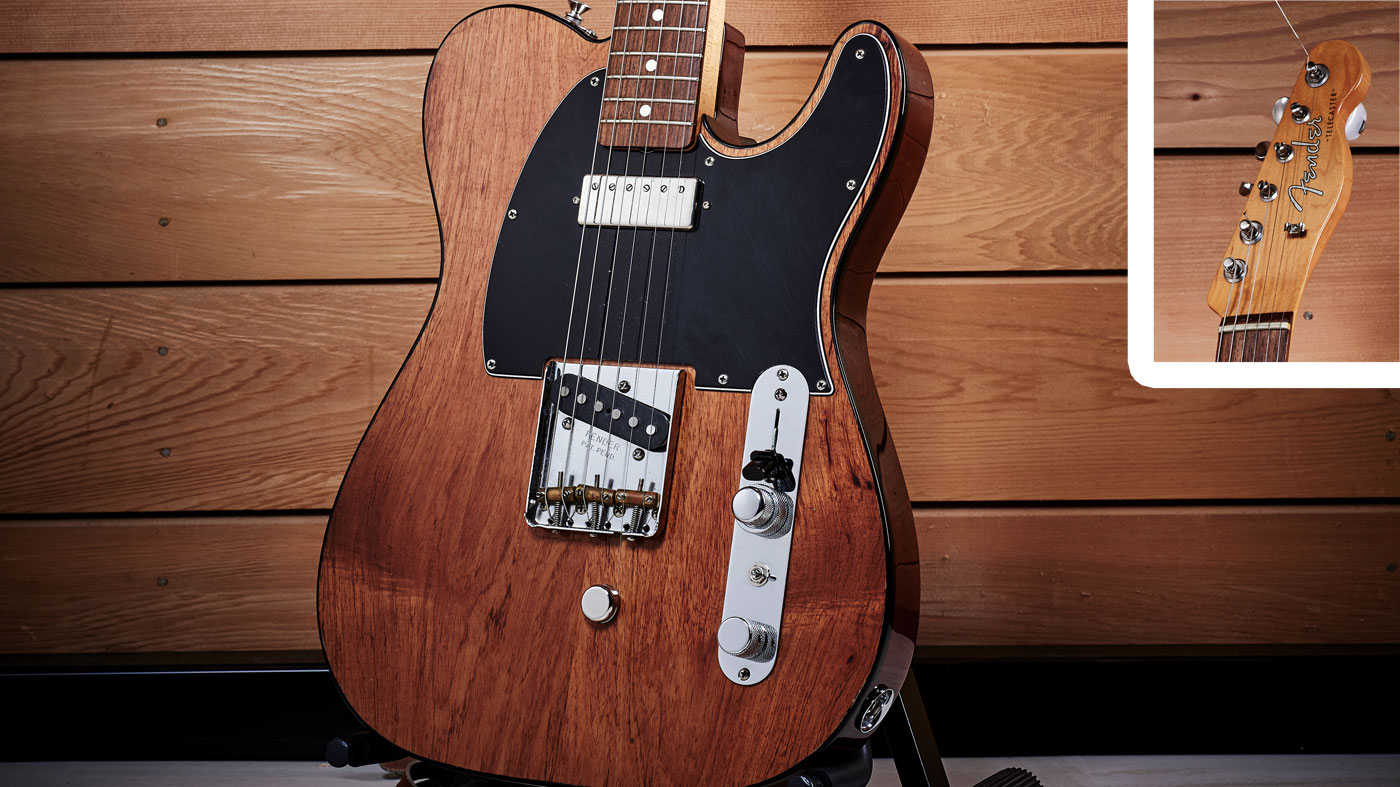
2006 Mexican Fender Telecaster
It may not have the vintage kudos of some of the other guitars in his collection, but Ethan’s Mexican Tele wins points for versatility: “It’s got everything I want,” he says.
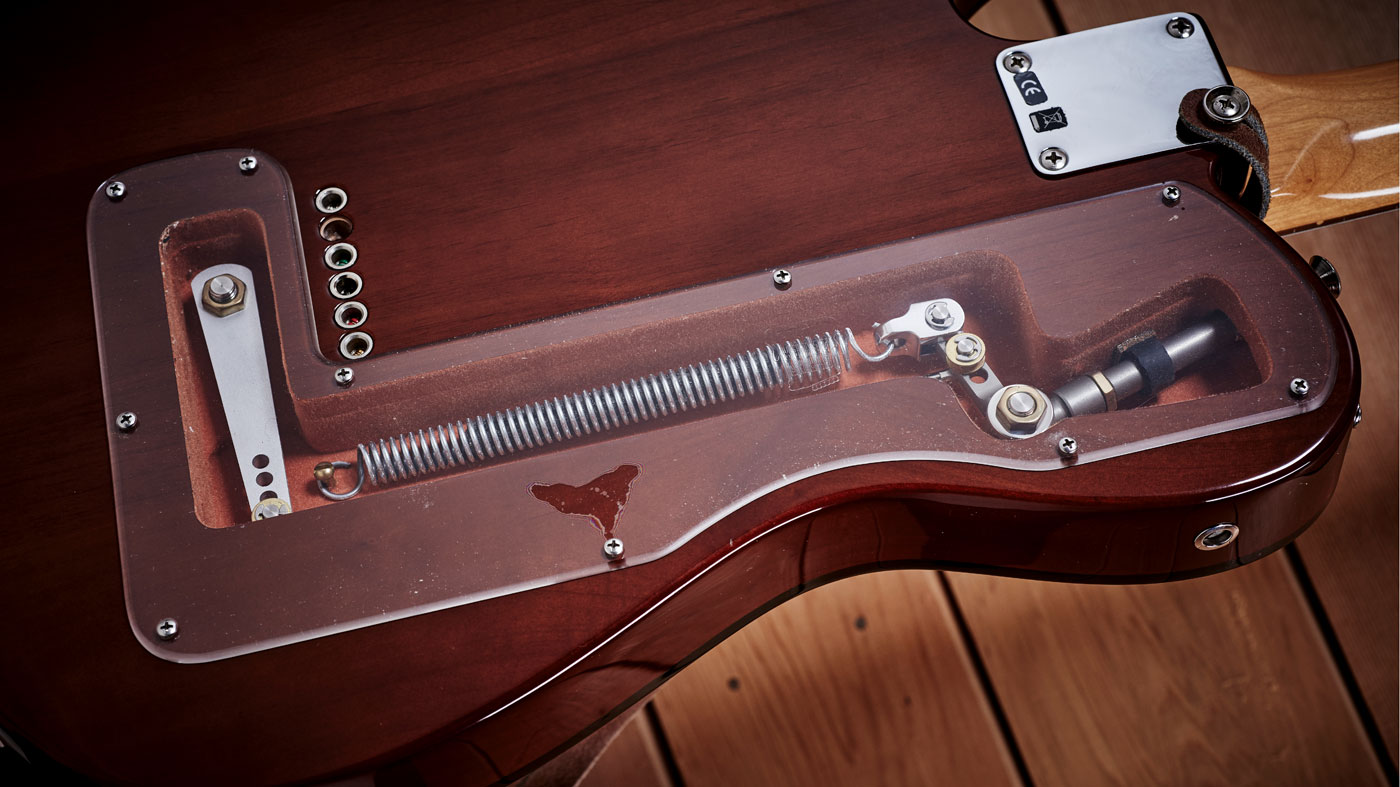
B-Bender
The B-Bender system in Ethan’s Mexican Tele was personally installed by The Byrds’ Gene Parsons, inventor of the B-Bender!
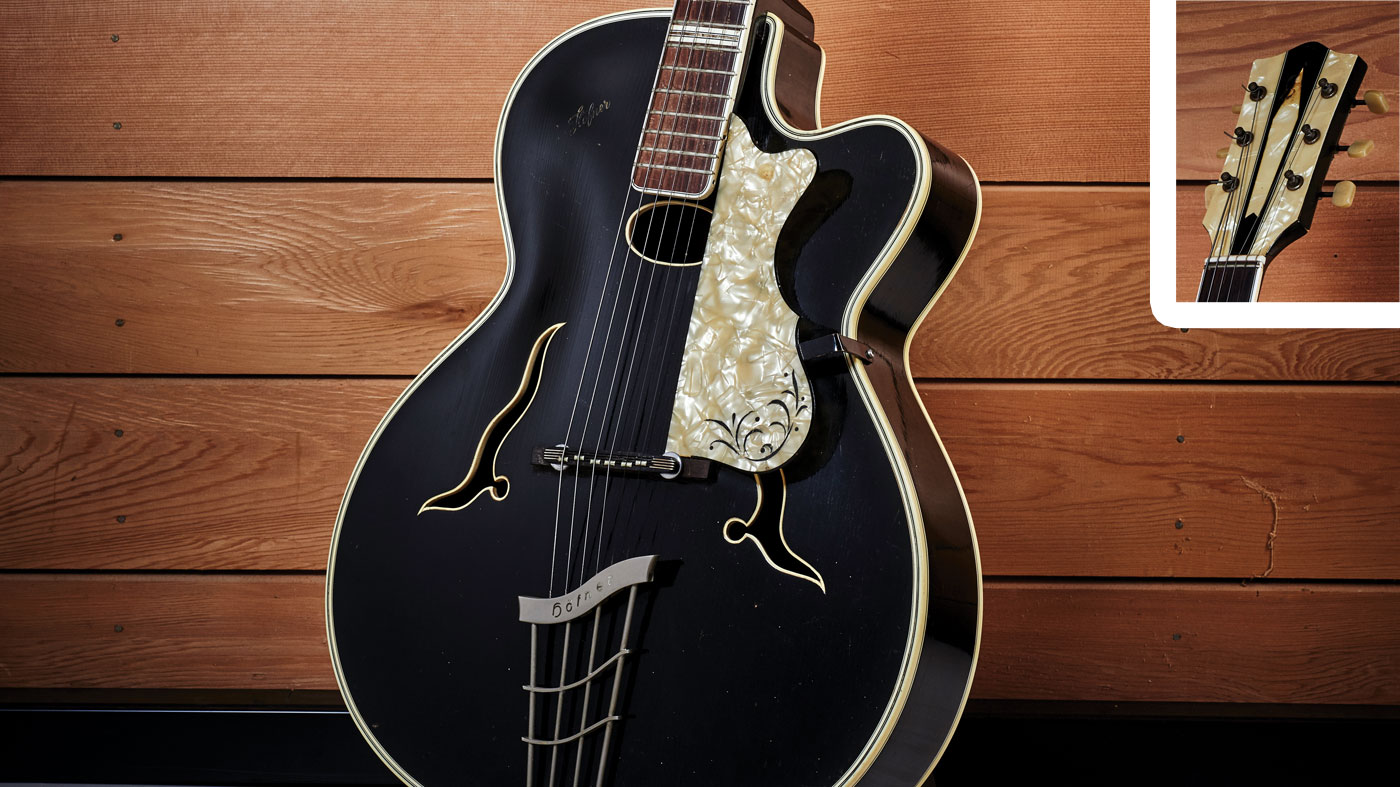
1950s Hofner 461S acoustic archtop
Ex-Ralph McTell 1950s Hofner 461S acoustic archtop. “It records great. It’s very middle-y. Sometimes you don’t want rhythm guitars to sound too big or they take up too much room”
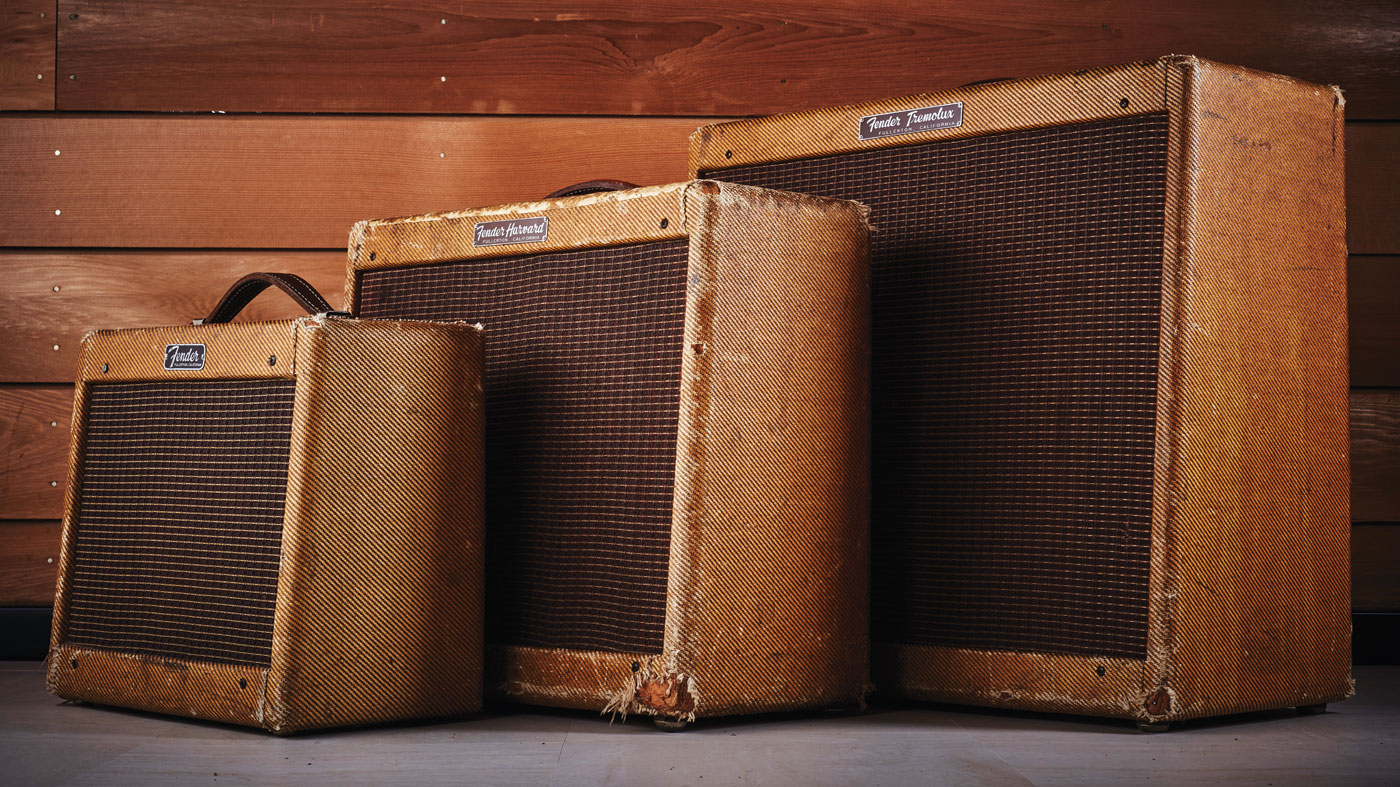
Vintage Fender tweed amps
A trio of vintage Fender tweed amps (in ascending order): 5F1 Champ, 5F10 Harvard and 5E9-A Tremolux. “These amps can give me the sound I need at the right volume”
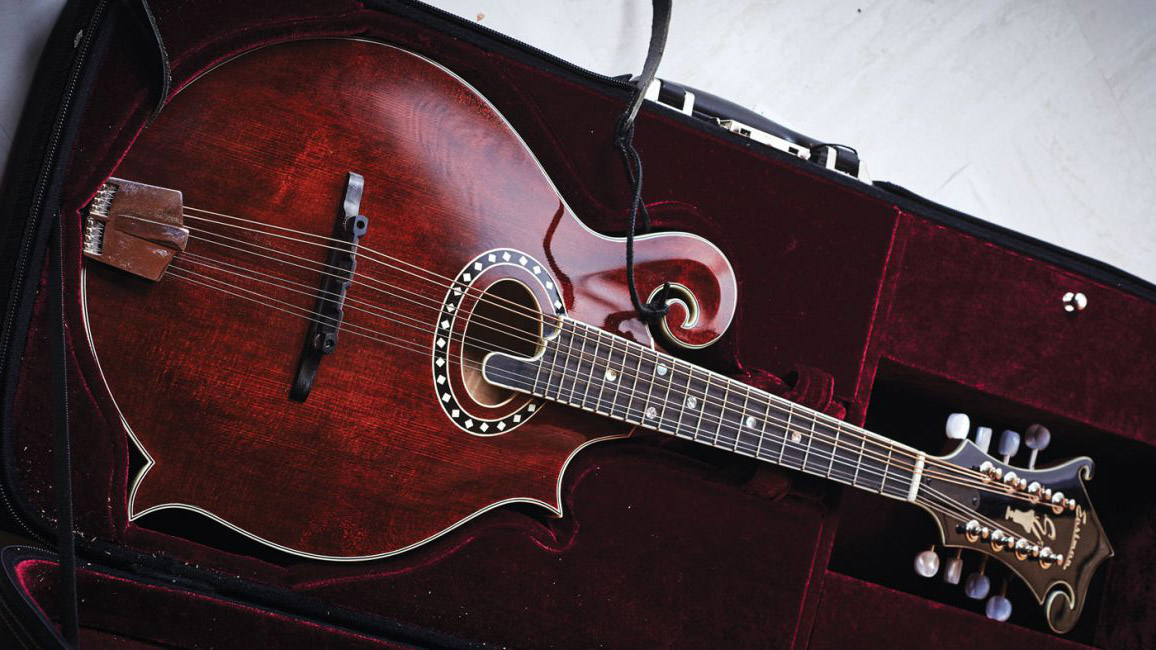
Eastman MD-514 F-style mandolin
“It’s such a useful tool,” says Ethan of this Eastman MD-514 F-style mandolin. “I’m always looking for something that’s going to be useful on a record and occupy a slightly different space, sonically”
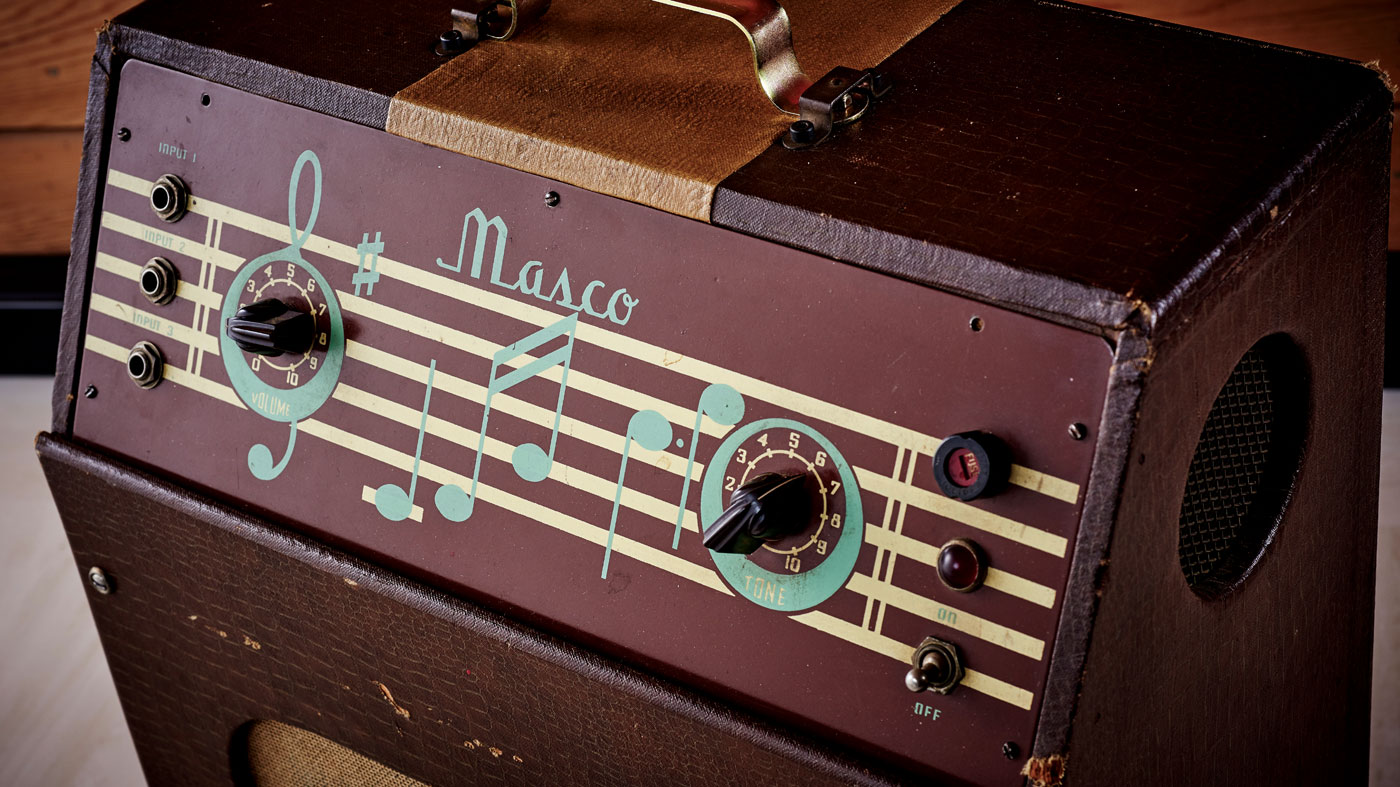
1940s Masco Map-15
“I remember bringing this [1940s Masco Map-15] amp to Buddy Miller who heard it and flipped out. He went and found one immediately!”
Take one
What advice would you give to guitar players when it comes to playing and writing their own material?
“Keep asking questions and try to do the best you can. People sometimes dismiss all kinds of music other than the stuff they’re listening to. I’m not saying that you shouldn’t champion the thing you love, but the truly great guitar players that I’ve come across are learning from every corner that they possibly can.
The truly great guitar players that I’ve come across are learning from every corner that they possibly can
“Ry Cooder is one of those guys. He really immerses himself with whoever it is that he’s interested in. He’ll go to Cuba if he wants to learn about Cuban music, or wherever. Keith [Richards] would never have come up with the open G tuning had he not hung out with Ry. One of the most definitive rhythm rock ’n’ roll guitar players took something like an open G tuning - which could’ve potentially been like a kind of bizarre Hawaiian thing - and look what he did with it! Anything can work its way in.”
How do you perform and ensure you capture a great take?
“I think one of the reasons that some recordings are still considered to be classic and sound fresh today is because they’re personal expressions of the artists. If you put on those Beatles records, the first thing that you hear is the personality of the people making the records, because there were so many imperfections.
“Dom Monks, an engineer I work with, said something really interesting: ‘So much is being said before you know what it is that you want to say on those early takes.’ During those run-throughs, before the takes, before the brain kicks in, there’s a really amazing atmosphere that flies around. You’re not over-intellectualising in any way, shape or form: you’re just responding to what you’re hearing for the first time.”
What is the best way for guitarists to approach writing and recording?
“You’ve got to find your truth in whatever it is that you’re trying to do. You shouldn’t let anybody influence what you’re doing if your creative expression is truthful. It’s very easy to be insecure or mindful about what others may think, but this whole thing about trying to be hip or trying to please your strongest critic… Fuck that! Don’t even bother with it - it’s got nothing to do with anything. As long as you’re being truthful to yourself then everything’s gonna be fine, man - it’ll work out!”
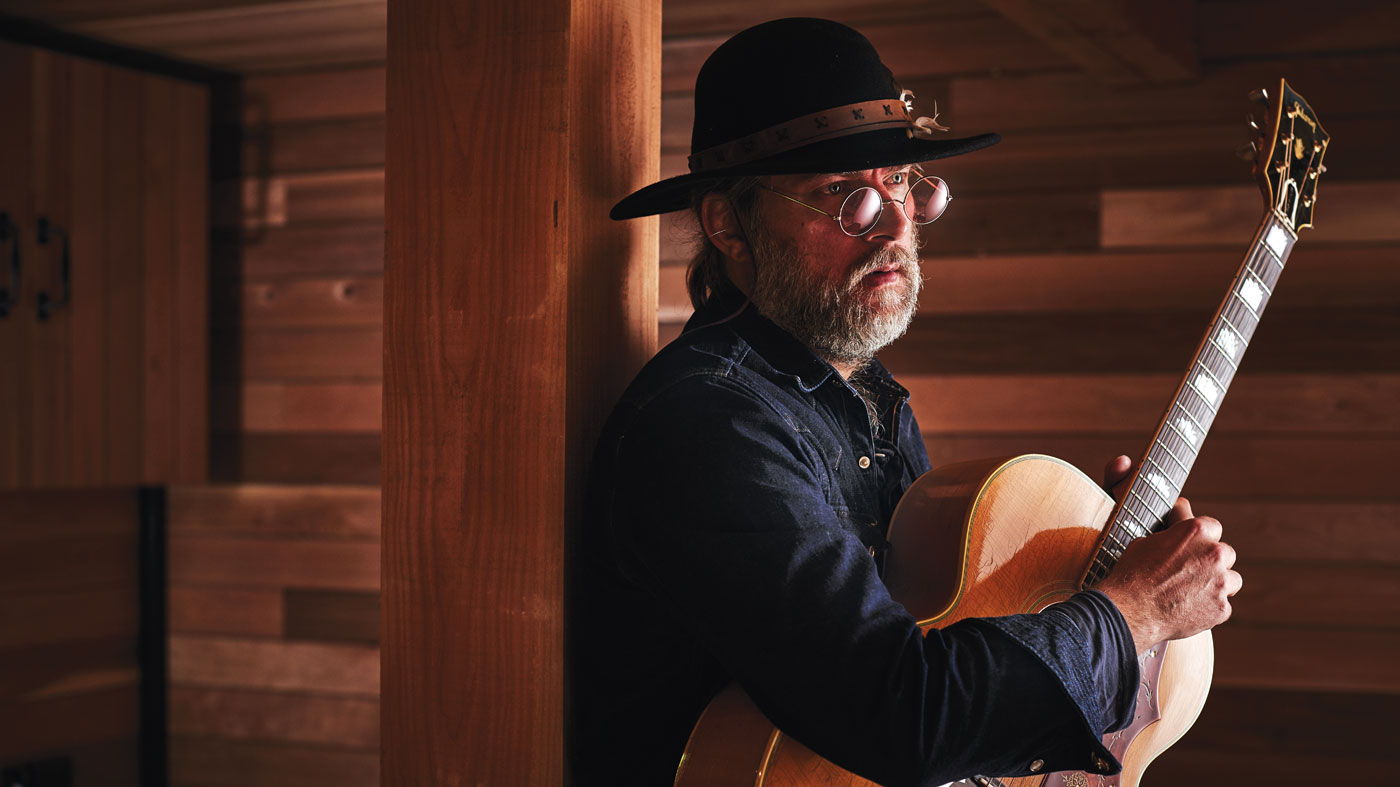
Respect music
What moments particularly stand out in your life as a musician?
“One of my highlights would be playing a benefit concert for Fred Walecki [of Westwood Music, Los Angeles] with Ry Cooder. I also got to play with The Byrds that night. What a buzz! It was the first time those guys had played together in a long time, and there I am playing drums with them - it was incredible!
[With Ry Cooder] it was like a lightning bolt! I’ve never been so lit up by another musician in my entire life
“The most important thing for me about those experiences was the joy in the music. It was a buzz to play with Ry in rehearsal, but when we walked on stage, that was when he really unleashed. It was like a lightning bolt! I’ve never been so lit up by another musician in my entire life. I’d never felt energy like it before. It was like he was from another planet.
“I think it’s commitment - full commitment - to the moment. There was no mistaking where it was or where it was going. It was like, ‘Get onboard and let’s fucking go!’ And there was a tremendous sort of abandon and purity in that moment.”
Who are you working with at the moment?
“I’m recording with Ida Mae at the moment and it’s been fantastic. The songs are great! I’m loving working with those guys. Stephanie [Jean] is a phenomenal keyboard player and it’s great to play drums alongside [guitarist] Chris Turpin. I find I relate to them as artists as much as anything.
“Chris is an amazing guitar player and nobody plays like him, that’s for sure. He’s clearly obsessed - he’s always playing. You don’t get that good without playing all the time. It’s amazing to me how obvious it is, but it’s easy to forget. If you want to get better as a guitar player, just pick up the guitar and play!”
Do you like to play guitar every day?
“I try and play every morning. Just doing something positive and meaningful with your day is so important - learning something, whether it be a chord sequence or whatever. It’s still magic to me, it really is. It’s important to bring that respect and love and ideology for music into the recording process. Music should be respected. I think if you do respect music in the way that you make it, it will treat you well.”
Rod Brakes is a music journalist with an expertise in guitars. Having spent many years at the coalface as a guitar dealer and tech, Rod's more recent work as a writer covering artists, industry pros and gear includes contributions for leading publications and websites such as Guitarist, Total Guitar, Guitar World, Guitar Player and MusicRadar in addition to specialist music books, blogs and social media. He is also a lifelong musician.
“I parted company with my trusty Fender Strat, previously owned by Lemmy, and part exchanged it for a flute. It just looked nice and shiny!”: How Jethro Tull's Ian Anderson became rock’s leading one-legged flautist
“Sometimes I am two people. Johnny is the nice one. Cash causes all the trouble. They fight”: How Johnny Cash drew on his own experiences to make his greatest songs


